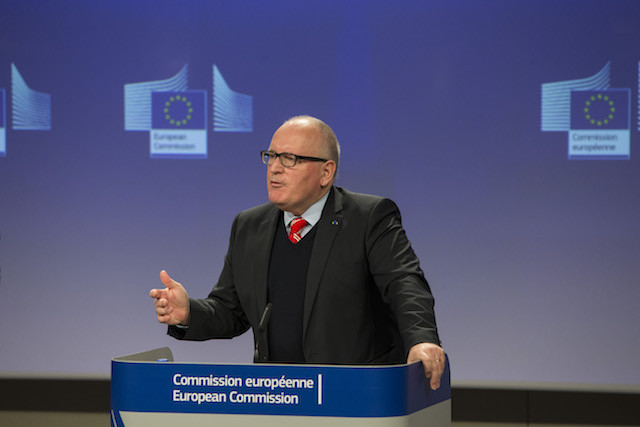It therefore proposes the Council to adopt a decision to trigger article 7(1), which in the extreme case, would suspend Poland’s voting rights in EU bodies.
“The European Commission is taking action to protect the rule of law in Europe. Judicial reforms in Poland mean that the country's judiciary is now under the political control of the ruling majority. In the absence of judicial independence, serious questions are raised about the effective application of EU law, from the protection of investments to the mutual recognition of decisions in areas as diverse as child custody disputes or the execution of European Arrest Warrants.”
For the past two years and over three separate recommendations, the European commission has pointed out that the constitutional draft laws that the populist governing PiS party has introduced were difficult to reconcile with rule of law principles that govern the European Union. However, Poland is not the only member state which is accused of disrespecting the rule of law; Hungary’s prime minister Viktor Orbán is also accused of capturing the independent institutions in a state, the constitutional and other courts and controlling the media.
The European Commission had warned in August that it might launch an infringement procedure in September, but decided to not to in the end.
Frans Timmermans, vice-president of the European Commission, said on Wednesday 20 December that the issue of respecting the rule of law was “of existential importance not just for Poland, but for the EU.”
He added that this was the first stage, of dialogue, and tried to play down media reports of it being a “nuclear option.”
While the European Commission has also issued a fourth rule of law recommendation, which sets out the steps that the Polish authorities can take to remedy the situation, it also maintained its offer to start a “constructive dialogue”.
Why launch the article 7 process against Poland?
The European Commission stated that:
“Over a period of two years, the Polish authorities have adopted more than 13 laws affecting the entire structure of the justice system in Poland, impacting the Constitutional Tribunal, Supreme Court, ordinary courts, National Council for the Judiciary, prosecution service and National School of Judiciary. The common pattern is that the executive and legislative branches have been systematically enabled to politically interfere in the composition, powers, administration and functioning of the judicial branch.”
It continued:
“The Reasoned Proposal sets out the Commission's concerns, recalling the steps taken under the Rule of Law Framework and the numerous contacts with the Polish authorities to try to identify a solution, and invites the Council to find that there is a clear risk of a serious breach of the rule of law. The concerns relate specifically to the lack of an independent and legitimate constitutional review and judicial independence.”
The commission recommends amending several laws which relate to the appointment and retirement of judges in the Supreme Court and the Ordinary Courts Organisation, and removing the the discretionary power of the President to prolong the mandate of Supreme Court judges, and remove the extraordinary appeal procedure, which includes a power to reopen final judgments taken years earlier, among other things.
Next steps
The Polish government has three months to reply and address these concerns.
The Council must hear Poland's position and obtain the consent of the European Parliament, which must vote on it by qualified majority. The Council can then adopt a decision by a four-fifths majority (22 of 27 members of the Council), determining that there is a clear risk of a serious breach of the rule of law. The Council may also address recommendations to Poland, acting in accordance with the same voting procedure.
